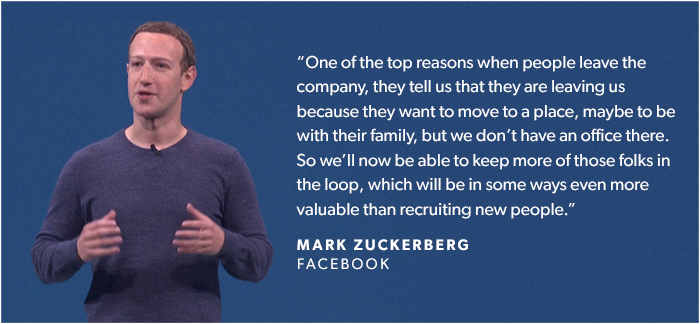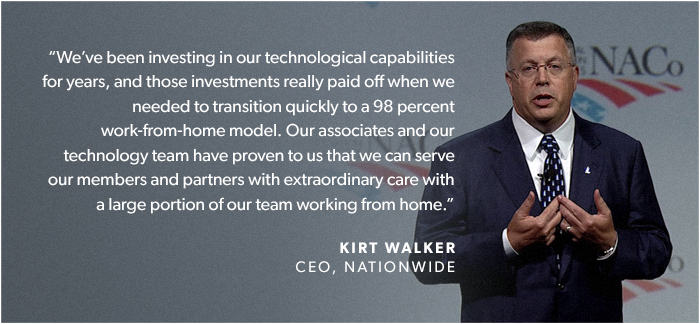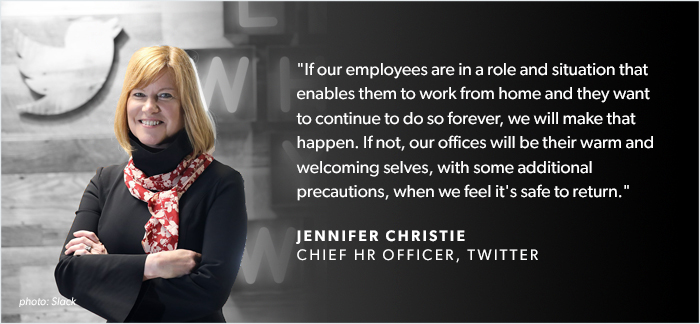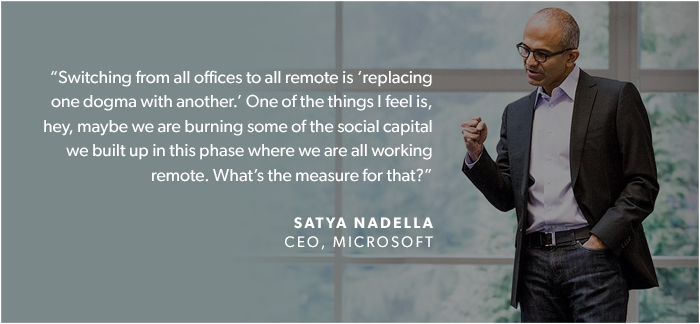We are all in search of answers that don’t quite exist yet. We’re juggling jobs and family, reading and research, wellness and productivity. We’re coworkers, psychologists, forecasters and medical experts, not to mention whatever our job titles say we are.
The Salve was created to be your partner. A collective of people under similar circumstances trying to fulfill similar roles, who are willing to share their findings to help shoulder the unreasonable workload of today.
Enjoying The Salve? Get the latest edition sent directly to your inbox!
According to Ellen Carney, financial services technology analyst with Forrester Research, every company needs a long-term work from home plan because, “subsequent waves of the virus and if the inevitable recession is U —not V— shaped” there will continue to be a disjointed office culture. This Harvard Business Review article explains “future-back thinking” as a useful tool for companies to use when deciding how and who will remain working from home long-term.
- At least half of Facebook’s 50,000 employees will be working from home by 2030.
- Available to:
- Experienced employees
- Employees with high performance marks
- Employees that are part of a team that isn’t needed in the office, and who have their supervisors’ approval.
- Facebook plans to pay new hires salaries based on the market rates for their specific cities.
- Facebook will use the policy to expand in new markets, offering space for teams to meet but not necessarily a full office.
- Likely try to reduce what it spends on offices so that it has more money free to support employees who work from home.
Nationwide Insurance
- Nationwide plans to permanently transition to a hybrid operating model that comprises primarily working from office in four main corporate campuses and working from home in most other locations.
- It will exit most buildings outside of four main campuses by November 1, 2020 and move associates in these locations to permanent remote-working status.
- Keeping offices in: Columbus, OH / Grandview Yard, OH / Des Moines, IA / Scottsdale, AZ / San Antonio, TX
- Exiting offices (remote workforce) in: Gainesville, FL / Harleysville, PA / Raleigh, NC / Wausau, WI / Richmond, VA
- Update: The company just ordered employees in its Columbus and Des Moines offices to work from home, just weeks after beginning the transition process to bring them back into Nationwide offices.
- Employees will be allowed to work from home as long as they see fit.
- Some jobs that require physical presence, such as maintaining servers, will still require employees to come in.
- Prior to COVID, Twitter made public their intent to work in a “distributed” way, but the pandemic forced the company to move the timeline up.
- Provided a $1000 allowance for work from home supplies to all employees.
Companies Start to Think Remote Work Isn’t So Great After All
Originally published in The Wall Street Journal.
When the pendulum swings hard to the left, no matter the topic or reasoning, always expect a hard swing back to the right. This article articulates the other side to the love and praise heaped on “work from home” culture. The truth is, one size does not fit all, and for certain companies this article might help spot the less desirable aspects of the currently disrupted office culture.
Cons:
- Projects take longer
- Training is tougher
- Hiring and integrating new employees, more complicated
- Workers appear less connected
- Bosses fear younger professionals aren’t developing at the same rate





